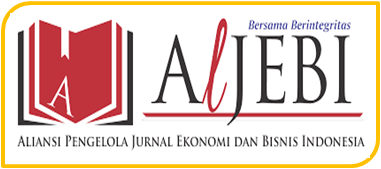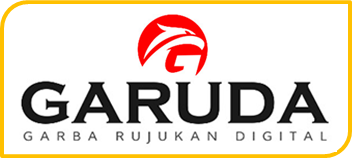Optimization of Waqf Management in Increasing Public Trust in Nazhir
Abstract
Keywords
Full Text:
PDFReferences
Afkar, S. Z. (2021). Potensi Ekonomi Dalam Zakat Dan Wakaf Saham di Indonesia. Istinbath, 19(2), 399–414. https://doi.org/10.20414/ijhi.v19i2.275
Aldeen, K. N., Ratih, I. S., & Pertiwi, R. S. (2021). Cash waqf from the millennials’ perspective: a case of Indonesia. ISRA International Journal of Islamic Finance, 14(1), 20–37. https://doi.org/10.1108/IJIF-10-2020-0223
Amania, N. (2018). Pengelolaan Aset Wakaf Yayasan Badan Wakaf (YBW) Al-Ikhsan Kudus Untuk Anak Yatim. ZISWAF : Jurnal Zakat Dan Wakaf, 5(1), 1–21. https://doi.org/10.21043/ziswaf.v5i1.3506
Anohib. (2017). Efektifitas Tugas Nazhir dalam Pengelolaan Tanah Wakaf di Kota Bengkulu. Babu Al-Ilmi, 2(2), 70–95. https://doi.org/10.29300/ba.v2i2.1058
Aryana, K. P. (2021). Akuntabilitas dan Transparansi Lembaga Pengelola Wakaf Melalui Waqf Qore Principle dan PSAK 112. Jurnal Akuntansi Bisnis Dan Ekonomi, 7(2), 2065–2080. https://doi.org/10.33197/jabe.vol7.iss2.2021.783
Astuti, H. H., Basri, Y. Z., & Tanjung, H. (2019). Analysis of Nazhir Accountability Implementation in Empowerment of Productive Waqf in Indonesia. Tazkia Islamic Finance and Business Review, 13(1), 63–80. https://doi.org/10.30993/tifbr.v13i1.199
Azkiya, G. (2021). 5 Strategi Digital Marketing Terbaik yang Dapat Langsung Kamu Gunakan. Skill Academy.
Baharuddin, A. Z., & Iman, R. Q. (2018). Nazir Wakaf Profesional, Standarisasi dan Problematikanya. Li Falah: Jurnal Studi Ekonomi Dan Bisnis Islam, 3(2), 62. https://doi.org/10.31332/lifalah.v3i2.1197
Budiarto, U. (2021). Pengembangan Digitalisasi dan Integrasi Data Wakaf Nasional. Komite Nasional Ekonomi Dan Keuangan Syariah.
BWI. (2020). Ketentuan dan Syarat Wakaf Sesuai UU. Badan Wakaf Indonesia (BWI).
BWI. (2022). Tingkatkan Kepercayaan Wakif, LSP BWI Gelar Sertifikasi Nazhir di Jatim. Badan Wakaf Indonesia (BWI).
BWI, BI, & IRTI-IsDB. (2018). Waqf Core Principles for Effective Waqf Operation and Supervision. International Working Group on Waqf Core Principles, 1, 1–75.
Choiriyah, C. (2017). Wakaf Produktif dan Tata Cara Pengelolaannya. Islamic Banking : Jurnal Pemikiran Dan Pengembangan Perbankan Syariah, 2, 25–34. https://doi.org/https://doi.org/10.36908/isbank.v2i2.29
DUKCAPIL. (2021). Distribusi Penduduk Indonesia Per Juni 2021: Jabar Terbanyak, Kaltara Paling Sedikit. Direktur Jenderal Kependudukan Dan Pencatatan Sipil Kementerian Dalam Negeri.
Efendi, M. (2019). Pelaksanaan Pasal 43 Undang-Undang Nomor 41 Tahun 2004 Mengenai Pengelolaan dan Pengembangan Harta Wakaf di Pondok Modern Darussalam Gontor. In Al-Ahkam Jurnal Ilmu Syari’ah dan Hukum (Vol. 4, Issue 2, pp. 151–161). https://doi.org/10.22515/al-ahkam.v4i2.1961
Fajariah, A. P., Sudana, S., & Rusydiana, A. (2020). Waqf for Optimizing Micro, Small and Medium Enterprise (MSMe) Funding Through Sharia Cooperatives In Indonesia. Jurnal Manajemen Teori Dan Terapan | Journal of Theory and Applied Management, 13(1), 1–15. https://doi.org/10.20473/jmtt.v13i1.14399
Farhand, M. Z. (2020). Analisis SWOT terhadap Cash Waqf Linked Sukuk Seri SW001 sebagai Evaluasi Penghimpunan (Issue 11160860000024). Universitas Islam Negeri Syarif Hidayatullah.
Fitri, R., & Wilantoro, H. P. (2018). Analisis Prioritas Solusi Permasalahan Pengelolaan Wakaf Produktif (Studi Kasus Kabupaten Banjarnegara). Al-Muzara’ah, 6(1), 41–59. https://doi.org/10.29244/jam.6.1.41-59
Hak, N. (2018). Potensi Wakaf dan Pengelolaan di Bengkulu. Baabul Ilmi, 3(2), 13–27. https://doi.org/10.29300/ba.v3i2.1535
Harahap, M. B. B., & Darwanto, D. (2021). Peran Strategi Badan Wakaf Indonesia (BWI) Dalam Meningkatkan Profesionalisme Nazhir Kota Semarang. TAWAZUN : Journal of Sharia Economic Law, 4(1), 104–120. https://doi.org/10.21043/tawazun.v4i1.10192
Hasanah, N., Sulistya, I., & Irfany, M. I. (2021). Strategi Pengelolaan Wakaf Uang oleh Badan Wakaf Indonesia (BWI). Al-Awqaf: Jurnal Wakaf Dan Ekonomi Islam, 13(1), 39–58. https://doi.org/10.47411/al-awqaf.v13i1.95
Ilmiah, D. (2019). Optimalisasi Asset Wakaf Melalui Sukuk Wakaf di Indonesia. JESI (Jurnal Ekonomi Syariah Indonesia), IX(2), 138–146. https://doi.org/10.21927/jesi.2019.9(2).127-137
Irfany, M. I. (2020). Optimalisasi Wakaf Produktif untuk Mencapai Tujuan SDGs. Institut Pertanian Bogor.
Lita, H. N., & Sandra, E. (2018). Perjanjian Build, Operate, and Transfer (BOT) Pada Kerjasama Pembangunan Commercial Building Diatas Tanah Wakaf Berdasarkan Ketentuan Hukum Positif Indonesia. Al-Awqaf: Jurnal Wakaf Dan Ekonomi Islam, 11(1), 23–32. https://doi.org/10.47411/al-awqaf.v11i1.26
Lubis, H. (2020). Potensi Dan Kendala Pengembangan Wakaf Uang Di Indonesia. ISLAMIC BUSINESS and FINANCE, 1(1), 43–59. https://doi.org/10.24014/ibf.v1i1.9373
Makhrus, M. (2018). Dinamika Kebijakan Negara dalam Pengelolaan Wakaf di Indonesia. JSSH (Jurnal Sains Sosial Dan Humaniora), 2(2), 209–224. https://doi.org/10.30595/jssh.v2i2.3137
Mulyono, S. H., Ayuniyyah, Q., & Ibdalsyah. (2022). Strategi Digital Fundraising Dalam Penghimpunan Dana Zakat : Studi Kasus Lembaga Amil Zakat Global Zakat. Jurnal Ilmiah Ekonomi Islam, 8(01), 67–79. https://doi.org/: http://dx.doi.org/10.29040/jiei.v8i1.4346
Muslim, M. (2017). Peran nazir profesional dalam pengelolaan wakaf guna mendorong pemberdayaan ekonomi umat di indonesia. IqtIshaduNa, viii(2), 37–46. https://doi.org/https://doi.org/10.20414/iqtishaduna.v8i1.387
Permana, Y., & Rukmanda, M. R. (2021). Wakaf: Tinjauan Fiqh, Dasar Hukum, dan Implementasinya di Indonesia. Al-Kharaj : Jurnal Ekonomi, Keuangan & Bisnis Syariah, 3(2), 142–156. https://doi.org/10.47467/alkharaj.v3i2.307
Pimada, L. M. (2021). Global Value Chain: Islamic Economics and Finance Position. Shirkah: Journal of Economics and Business, 6(3), 397–314. https://doi.org/10.22515/shirkah.v6i3.353
Prasinanda, R. P., & Widiastuti, T. (2019). Peran Nazhir Dalam Mengelola Hasil Wakaf Uang Pada Badan Wakaf Indonesia Jawa Timur. Jurnal Ekonomi Syariah Teori Dan Terapan, 6(12), 2553–2567. https://doi.org/https://doi.org/10.20473/vol6iss201912pp2553-2567
Purwanto, P. (2017). Hambatan Dalam Pengelolaan Wakaf Produktif. Wahana Islamika: Jurnal Studi Keislaman, 3(2), 96–112. https://doi.org/https://doi.org/10.5281/wahanaislamika.v3i2.53
Rahayu, R. D., & Agustianto, M. A. (2020). Analisis Implementasi Cash Waqf Linked Sukuk (CWLS) Perspektif Prinsip Ekonomi Syariah. Management of Zakat and Waqf Journal (MAZAWA), 1(2), 145–161. https://doi.org/10.15642/mzw.2020.1.2.145-161
Riyanto, R. (2017). Optimalisasi Pengelolaan Wakaf (Studi di Kabupaten Demak). Al-’Adalah, 14(2), 333–366. https://doi.org/10.24042/adalah.v14i2.1967
Safitri, A. W., Hasan, A., & Oktaviany, M. (2021). Model Kelembagaan Nazhir Dalam Pengelolaan Wakaf Produktif Di Indonesia. Al-Mashrafiyah: Jurnal Ekonomi, Keuangan, Dan Perbankan Syariah, 5(1), 75–91. https://doi.org/10.24252/al-mashrafiyah.v5i1.17030
Siswantoro, D., Rosdiana, H., & Fathurahman, H. (2018). Reconstructing accountability of the cash waqf (endowment) institution in Indonesia. Managerial Finance, 44(5), 624–644. https://doi.org/10.1108/MF-05-2017-0188
Siva, S. (2021). Macam-Macam Dan Contoh Wakaf Yang Harus Diketahui. Yayasan Sedekah Air.
Sukmana, R. (2020). Critical assessment of Islamic endowment funds (Waqf) literature: lesson for government and future directions. Heliyon, 6(10), e05074. https://doi.org/10.1016/j.heliyon.2020.e05074
Syarief, E. (2021). Optimization of waqf land management in Indonesia. International Journal of Research in Business and Social Science, 10(2), 270–283. https://doi.org/DOI:10.20525/ijrbs.vI0i2.1076
Yuliana, I., & Hadi, S. P. (2019). Model Penerapan Dan Potensi Wakaf Saham Di Indonesia. Jurnal Perspektif Ekonomi Darussalam, 5(2), 227–239. https://doi.org/10.24815/jped.v5i2.13934
Yumarni, A., Suhartini, E., & Sardiana, A. (2020). Problems In Managing Waqf Endowment Asset In Bogor Regency. Al-’Adalah, 16(2), 393–410. https://doi.org/10.24042/adalah.v16i2.3876
DOI: https://doi.org/10.18860/miec.v2i2.16461
Refbacks
- There are currently no refbacks.

This work is licensed under a Creative Commons Attribution-ShareAlike 4.0 International License.
Editorial Office:
Megawati Soekarnoputri Building
Faculty of Economics
Jln. Gajayana 50 Telp (0341) 558881
E-mail: m-iecjournal@uin-malang.ac.id
UIN Maulana Malik Ibrahim Malang
Member of:
Indexed by:
Maliki Islamic Economics Journal under a CC BY SA 4.0 International License.
View My Stats


























